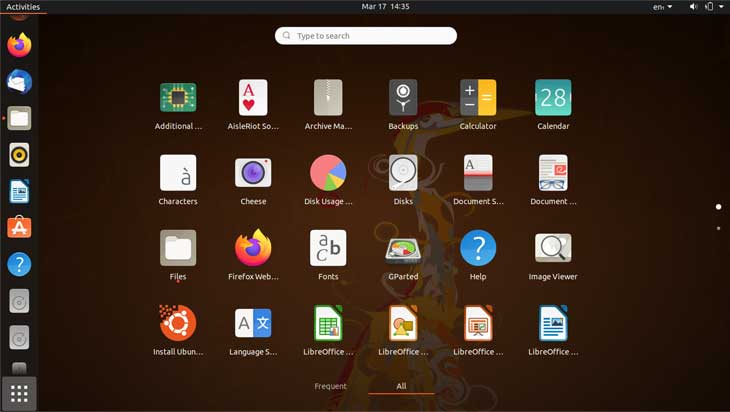

- #Install ubuntu from usb windows how to#
- #Install ubuntu from usb windows install#
- #Install ubuntu from usb windows drivers#
- #Install ubuntu from usb windows update#
- #Install ubuntu from usb windows windows 10#
Option #5: Install Ubuntu from a USB Memory Stick

The installer will happily wipe your old Windows partition(s) and install Ubuntu 20.04 (or any other variant) for you.īefore you go “all-in” on this OS switch, you must check the requirements to ensure your PC or laptop is capable of installing and using the new OS-it probably is. Once again, UNetbootin and Rufus work great in Windows to create the installation media.
#Install ubuntu from usb windows windows 10#
The simplest way to install Ubuntu 20.04 on your laptop or PC is to replace Windows 10 using a bootable USB install stick. It is not a full-fledged install, although you can save on it (as the “cached” user.) Option #4: Replace Windows 10 with Ubuntu 20.04 on Your Laptop or PC A persistent install is designed to get you going in the most simplistic way, using applications, browsing the web, saving files, checking email, personalizing the system, etc. Overall, persistent live USBs can run on any PC, but the option restricts functionality to a cached user, not a personal one filled with your unique profile data. When adding the Ubuntu installation iso to the USB, you can choose to include persistent storage, which reserves a portion of the USB stick for saving files and making other OS changes. This feature is performed using third-party software, such as UNetbootin or Rufus. Ubuntu not only lets you test drive it first but also incorporates the option to make the bootable USB persistent, while still trying it out. Option #3: Make a Persistent Ubuntu Live USB Drive OK, here’s where the tables turn so that you CAN save files with every bootup. Any activity and installed apps will disappear after each shutdown or reboot.
#Install ubuntu from usb windows update#
What you cannot do is create a profile, install drivers, or update the kernel. With a live USB, you can run and install applications, and you can explore what the OS looks like plus see how it functions. You are loading a live USB drive, meaning that Ubuntu 20.04 is loaded using cache and does not touch your HDD at all, except for persistent drives that write to the USB, which are mentioned in the next section. The option is not like a complete Ubuntu installation. Simply choose “Try Ubuntu” and you’ll see the OS launch before your eyes as a live USB operating system. An Ubuntu Live USB is basically an Ubuntu OS installation iso that provides two options upon bootup: try it first or install it. This option is perhaps the easiest one of them all. Test out Ubuntu 20.04 LTS or any other variant before you decide to either overwrite your current OS or install it alongside Windows on your laptop or PC. Option #2: Try Unbuntu 20.04 LTS before Installing ItĪfter deciding on the Ubuntu version you want, trying it out without installing it is a great option. Overall, LTS versions are the most popular and the most stable. If you are tech-savvy, feel free to explore the choices. However, non-LTS versions get newer features, but they, unfortunately, encounter more bugs. Other releases like Ubuntu 20.10 (Groovy Gorilla) do not carry long-term support and only receive nine months of updates.
#Install ubuntu from usb windows drivers#
LTS versions give you long-term support (five years) for drivers plus system and security updates.


Several Ubuntu Operating System variants are available, including core Ubuntu, Kubuntu, Ubuntu MATE, Ubuntu Budgie, and many more.įor simplicity’s sake, we’ll ignore derivatives such as Kubuntu and Xubuntu, not to mention server variants, and focus on the core Ubuntu Desktop, namely Focal Fossa (Ubuntu 20.04 LTS).
#Install ubuntu from usb windows how to#
The article is about the type of install you want to have and how to install it, including replacing your Windows 7, 8, or 10 OS with a full Ubuntu installation, installing Ubuntu alongside Windows 10, making a persistent USB Live drive, or trying Ubuntu without actually installing anything.īefore you install Ubuntu, you need to decide on which version you want. The install methods discussed here do not specifically refer to installation media options (DVD, Server, USB).


 0 kommentar(er)
0 kommentar(er)
